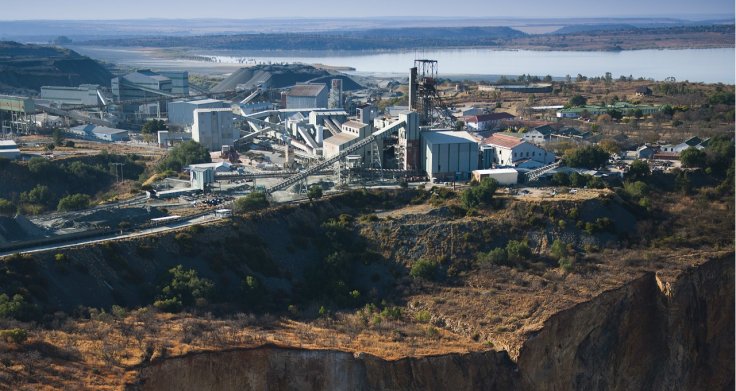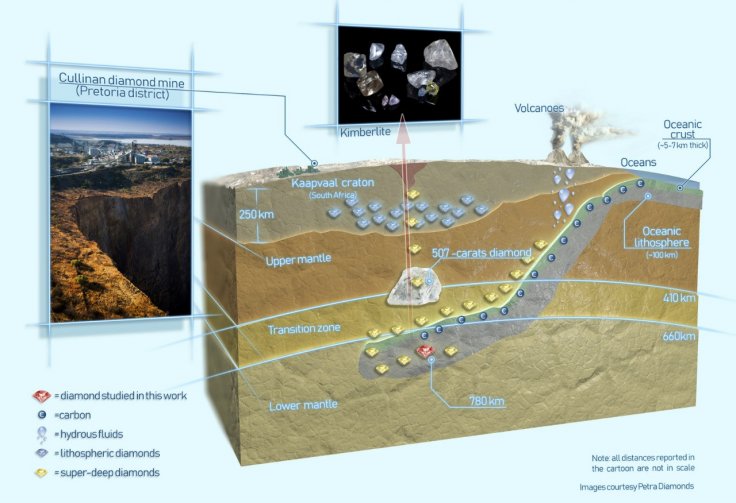
Scientists have discovered Earth's fourth most abundant mineral—calcium silicate perovskite -- rarely found on the surface but submerged deep inside Earth's mantle, at 700 kilometres as it is too unstable to exist on the surface.
Now, it has been found in a diamond supposed to have formed deep in the Earth's mantle. Diamond acts as a strong container and the only cover to keep the unstable mineral intact and that too on Earth's surface. The diamond was mined from the Cullinan Mine in South Africa.
"Nobody has ever managed to keep this mineral stable at the Earth's surface," said Graham Pearson of the University of Alberta. "Based on our findings, there could be as much as zetta tonnes of this perovskite in deep Earth."
Pearson said that this diamond is sourced from the same mine that gave the world the two largest diamonds currently found in the British Crown.
He said this particular diamond - calcium silicate perovskite- would have sustained more than 24 billion pascals of pressure, which is equivalent to 240,000 atmospheres before it formed. Most diamonds are formed at a depth of about 150 to 200 km, whereas this diamond possibly originated at a depth of at least 700 km.

"Diamonds are really unique ways of seeing what's in the Earth," he said. "The specific composition of the perovskite inclusion in this particular diamond very clearly indicates the recycling of oceanic crust into Earth's lower mantle. It provides fundamental proof of what happens to the fate of oceanic plates as they descend into the depths of the Earth."

Pearson referred to the latest discovery as "a nice illustration of how science works." It happens once in a while, he added.
In 2014, scientists made similar discovery of ringwoodite, which is the fifth most abundant mineral on the planet. The study reiterates the view that there are huge reservoirs of water in silicate rocks deep inside the Earth's mantle.
"With the ringwoodite discovery, we showed there is a lot of water trapped in really deep parts of the Earth, which probably all came from recycling ocean water," Pearson said.
The study, "CaSiO3 Perovskite in Diamond Indicates the Recycling of Oceanic Crust Into the Lower Mantle," was published in the March 8 issue of Nature.









